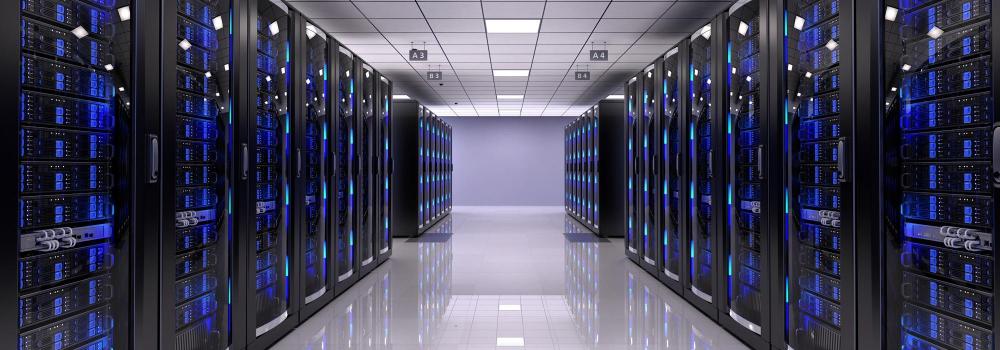Server rooms are critical components of facility computing equipment. With the right sensor setup, you can safely maintain proper server room temperature, humidity, and leak-free conditions.
If your facility contains a server room supporting the full suite of computing needs for your buildings and staff, the last thing you want to worry about is whether the environmental factors are going to remain stable enough to support efficient and uninterrupted support for your campus. Understanding the proper temperature and humidity levels for your equipment — and installing the correct monitoring solutions to track those levels — is vital to maintaining a robust, stable server room temperature and environment.
Importance of Environmental Controls for Server Rooms
Maintaining server room temperature and humidity is not as simple as setting your equipment and walking away. It is vital to also employ room temperature monitors, humidity sensors, and even water leak detectors to ensure the server room maintains an environment conducive to continuous operability and minimal disruptions. Industry research from survey data shows the average cost of a server downtown is $5,600 per minute, or well over $300k per hour, highlighting the importance of keeping your equipment in service.
Recommended Data Center Environmental Specifications
The Natural Resources Defense Council reported that data centers were over-consuming energy resources, with upwards of 40% energy savings achievable through efficiency measures without sacrificing productivity. Furthermore, The American Society of Heating, Refrigeration, and Air Conditioning Engineers updated their recommendations for server room and data center environmental conditions, as servers were understood to be able to operate at higher temperatures than had been thought.
The new guidelines constitute an expanded range over previous recommendations. These facilitate greater energy and cost savings while still maintaining optimal server operation. For classes A1-A4, the following conditions are recommended:
- Dry-bulb temperature: 64-80° F (18-27° C)
- Maximum relative humidity: 60%
Using Monitors to Maintain the Proper Server Room Environment
Understanding the proper operating parameters for your server room is crucial to keeping your facility’s computer system running. But that knowledge is also dependent on a network of environmental monitoring solutions that can track changes and immediately alert you to any variations from the expected settings. From room temperature and humidity monitors to water leak detectors, you need to ensure you have the proper combination of monitoring technology to keep an eye on server room temperature and other conditions that protect your electronic assets. Given the amount of time server rooms are unoccupied, these solutions should also be able to alert you if any of those conditions ever depart from the acceptable range.
The Primex OneVue Sense™ automated monitoring solution can ensure a long lifespan and minimal downtime for your server room equipment. Room temperature and humidity monitoring solutions measure the ambient air conditions, while water leak monitoring technology tracks unwanted water intrusions, and contact closure solutions detect how often server room doors and cabinets are opened. Set your own custom thresholds, and the web-based Primex OneVue® software platform will alert you instantly via e-mail, text, or call if server room conditions ever stray outside those ranges. The OneVue Sense technology and OneVue software platform combined data tracking and reporting capabilities satisfy the real-time monitoring and reporting advised by ASHRAE for optimal server room performance.
Interested in learning more about how Primex can help keep your server room operating as efficiently as possible? Reach out for a consultation today.
Sources:
Gartner - The Cost of Downtime
ASHRAE TC9.9 - Data Center Power Equipment Thermal Guidelines and Best Practices
NRDC - America’s Data Centers Are Wasting Huge Amounts of Energy
